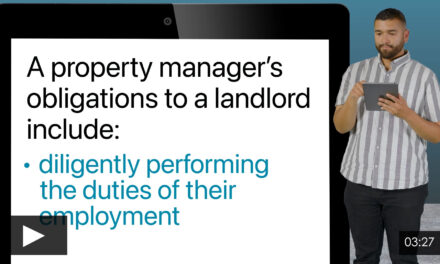This article analyzes a vacation home as §1031 like-kind property held for investment.
Held for investment and personal use
A vacation home, also known as a second home, is any dwelling unit, such as a house, apartment, condominium, mobile home, recreational vehicle or boat, personally used by the owner, co-owners, their families or friends as a residence other than as a principal residence.
As a second home, the real estate taxes and interest, accrued and paid on loans secured by the vacation home, are deductible. The deductions are allowed whether the property is rented to others or occupied solely by the owner, without concern for the length of occupancy by the owner or the tenants and transient occupants who pay rent for their stay on the property. [Internal Revenue Code §§163(h)(4)(A)(iii), 164, 280A(e)(2)]
However, the deduction of repair and maintenance expenses is limited if the home is rented. Also, depreciation deductions are not allowed when the property is rented if the owner, his family and friends personally use the vacation home beyond a threshold period of days.
Interest deductions for second homes
Two categories of interest deductions exist for all loans secured by the first or second home:
- interest on purchase or improvement loan balances up to a combined amount of $1,000,000, called purchase-assist loans; and
- interest on all other loan amounts up to $100,000, called home equity loans.
Due to the special home loan interest deduction rules, the owner may deduct the interest accrued and paid on those loan amounts which funded payment of the purchase price or costs of improvement. The loans must be secured by the owner’s principal residence or second home. Without the home loan rule, the interest would not be deductible since the loans constitute a generally undeductible personal expense, not a business or investment expense. [IRC §163(h)]
Also, equity loans secured by the first or second residence are controlled by the home loan interest deduction rules, regardless of whether the loan’s net proceeds are used for personal or investment/business purposes.
Interest paid on that portion of the total of the loan balances on the first and second homes which exceeds $1,100,000 is not deductible.
The deduction of interest paid on the first and second home loans reduces taxable income under both the standard income tax (SIT) and alternative minimum tax (AMT) reporting rules.
In contrast, the real estate property tax deduction on the first and second homes only reduces the owner’s SIT, not his AMT.
Real estate property taxes paid on the vacation home may be deducted from SIT income in their entirety, without reduction for having rented the property for any period of time. [IRC §164]
Deductibility of expenses
Expenses the owner incurs in the repair and maintenance of the vacation home may or may not be partially deducted. Deductibility of expenses is based on whether:
1. The vacation home is used exclusively by the owner and his family or friends and is not rented, in which case the use is solely personal and the expenses for repair and maintenance cannot be written off as a deduction against any income. [IRC §280A(a)]
2. The vacation home is rented for periods totaling 14 days or less, in which case no expenses can be written off (and no rental income is reported). [IRC §280A(g)]
3. The vacation home is rented for periods exceeding a total of 14 days, in which case the expenses incurred to operate the vacation home are partially deductible. Deductions are limited to a pro rata amount of the expenses, a percentage based on the number of days rented over the total number of days the vacation home was occupied for any purpose, including the personal use by the owner, co-owners, their families, friends, and all other occupants who did or did not pay rent for their stay. Days qualifying as repair and maintenance days are excluded from the formula. [IRC §280A(e); Revenue Regulations §1.280A-1(e)(6)]
A capital asset and portfolio property
A vacation home bought as a real estate investment and used exclusively for personal enjoyment or intermittently rented for any length of time is a capital asset. [IRC §1221]
A vacation home personally used for any period during the year is not a trade or business property even though guests renting the property are transient occupants with an average occupancy of 30 days or less. [IRC §§1231(b)(1), 280A(a)]
Depending on the days in an average rental occupancy period, a vacation home which is personally used by the owner and also rented to others is reported as either:
- a rental property in the passive income category; or
- an investment property in the portfolio income category.
To be a rental property, the vacation home income must come from occupancies which average more than 30 days. If the average occupancy is 30 days or less, the vacation home cannot be classified as a rental. Thus, it is not a passive income category property.
Most vacation homes are rented to transient occupants for periods of several days to a week or two, typically under a guest occupancy agreement. Accordingly, the average occupancy of a transient occupant is 30 days or less.
When a capital asset is held for investment, such as a personal use vacation home rented to transient occupants, its income and expenses are reported in the portfolio income category. Other assets held for investment and profit on resale as portfolio properties include undeveloped land, ground leases, triple net leases, trust deed (loan) notes, interest income, stocks, dividends and bonds.
Conversely, if the dwelling unit is a vacation rental which is not personally used as a second home by the owner, his family or friends, the nature of the business of renting to transient occupants (for an average occupancy of less than 30 days) would establish the vacation rental as a trade or business property. The income expenses, interest and depreciation for the vacation rental property would be treated the same as for a motel, inn or hotel operation and not as for a rental or investment property. Again, any personal use of the property would make the vacation rental a second home and a portfolio category investment.
Depreciation deductions based on use
The depreciation of a vacation home to recover the cost of the improvements is a deduction allowed to offset rental income from the property and income from other sources. However, depreciation may not be taken on a vacation home if the owner, co-owners, their families or friends occupy the vacation home during the year for periods of personal use totaling more than 14 days or 10% of the days the property is rented, whichever number of days is greater. [IRC §280A(d)(1)]
For example, a vacation home is rented to others during the year at a fair rental rate for a total of 140 days or less. The owner and others who pay less than fair rent, or no rent at all, occupy the property for no more than 14 days. Here, the owner may take the full amount of his scheduled depreciation deduction.
However, should the property be rented out for more than 140 days during the year, for example, 200 days, then the total number of days of personal use the owner may make of the vacation home without losing the right to depreciation deductions may exceed 14 days, limited to 10% of the days rented, being 20 days in this example. [IRC §§163(h)(4)(A)(i)(II), 280A(d)(1)]
Two straight-line depreciation schedules are mandated to be used for income tax reporting. The depreciation schedules for residential vacation properties are:
- 27.5 years straight-line depreciation for standard (regular) income tax reporting; and
- 40 years straight-line depreciation for alternative minimum income tax reporting.
The days of personal use affecting the deduction of expenses and depreciation do not include days during which the owner conducts a full-time schedule of repair and maintenance on the property. [IRC §280A(d)(2)]
For example, the owner and his family arrive on Saturday afternoon at their vacation home to stay until the following Saturday. The primary purpose for the stay is to relax and perform annual repairs and maintenance to prepare the property for the season. They do no maintenance work on Saturday. The owner and his wife relax the entire week, fishing, walking and visiting neighbors. They occasionally assist other family members in the maintenance work on the property.
Some members of the family work substantially full-time each day, except for the day of arrival and departure. They all leave on the following Saturday. Here, the purpose for the use of the vacation home is not personal. Thus, none of the days spent at the property are personal use days. [Revenue Regulations §1.280A-1(e)(7), Example 3]
For personal use days, when the occupation by the owner and his family is not for the purpose of maintenance, the day of arrival and day of departure are considered to be only one day if the total hours at the property during the two days does not exceed 24 hours. [Proposed Regulations §1.280A-1(f)]
A vacation home as §1031 property
Consider an owner of a vacation home who purchased the property for the personal use of his family and friends. The objective of the purchase was to own the property until it was no longer of use to him as his vacation home, with the hope that the property would appreciate in value in the meantime.
The owner is now working with a broker to buy another, more expensive vacation home in a different resort area of more interest to the family members. The owner informs the broker he is selling the vacation home and taking a large profit, but he is unsure of the tax consequences.
Regarding the profit on his sale of other types of property, the owner is aware he can avoid profit taxes under:
- the Internal Revenue Code (IRC) 121 $250,000 profit exclusion for each owner or occupant should he sell his principal residence; and
- the IRC 1031 profit tax exemption for the sale of trade or business property, rentals and other properties held for investment, if sold as part of a reinvestment plan.
However, the owner is unaware of any tax avoidance for profits from the sale of a vacation home that he and his family have used exclusively as a personal residence. He asks his broker what the broker knows about the profit tax avoidance available on a vacation home.
The broker, aware of the tax status of vacation homes, points out that the owners personal use of the vacation home does not by itself disqualify the sale of the property for a 1031 tax-free reinvestment of the net proceeds from the sale.
However, the fact that the vacation home was never held out for rent or for resale by the owner, or reported as an investment on the owners income tax returns, does disqualify the property from being classified as investment property in the portfolio income category. Thus, a vacation home not managed as a vacation rental property, is not a like-kind 1031 property.
Either way, the owners vacation home is a capital asset. However, had the owner handled the vacation home as a vacation rental property when the owner and his family and friends were not in residence, and itemized expenses and taken interest or depreciation deductions on his income tax returns, the property would have qualified as investment property. The mere intent to hold the property for eventual resale with the hope it will appreciate in value does not establish a vacation home (or any second home) as an investment property for a 1031 tax-free exchange. [Moore v. Commissioner (2007) TC Memo 2007-134]













